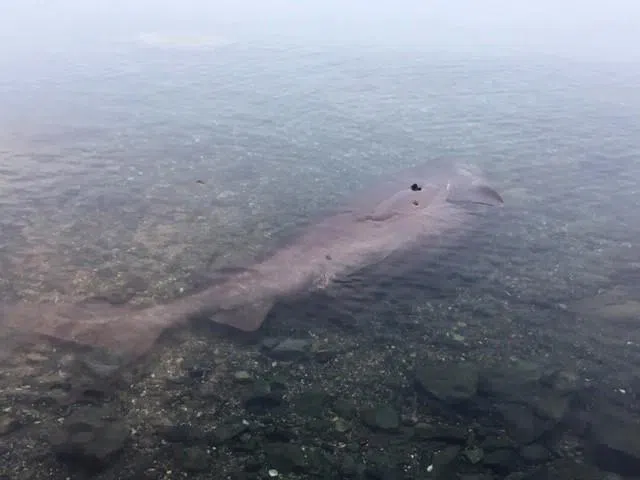
Scientists intrigued by remains of pregnant, sixgill shark on B.C. beach
SAANICH, B.C. — Scientists say the carcass of a large, bluntnose sixgill shark that washed onto a Vancouver Island beach north of Victoria earlier this week is a great reminder that there are about 12 species of sharks in British Columbia’s coastal waters.
Fisheries and Oceans Canada research scientist Jackie King says the creature, sometimes known as a cow shark, was female and roughly four-metres long.
It was pregnant and King says it was carrying several young, called pups, when it died, likely of natural causes.
The pups also died and King says a necropsy on the remains of the adult is underway.


